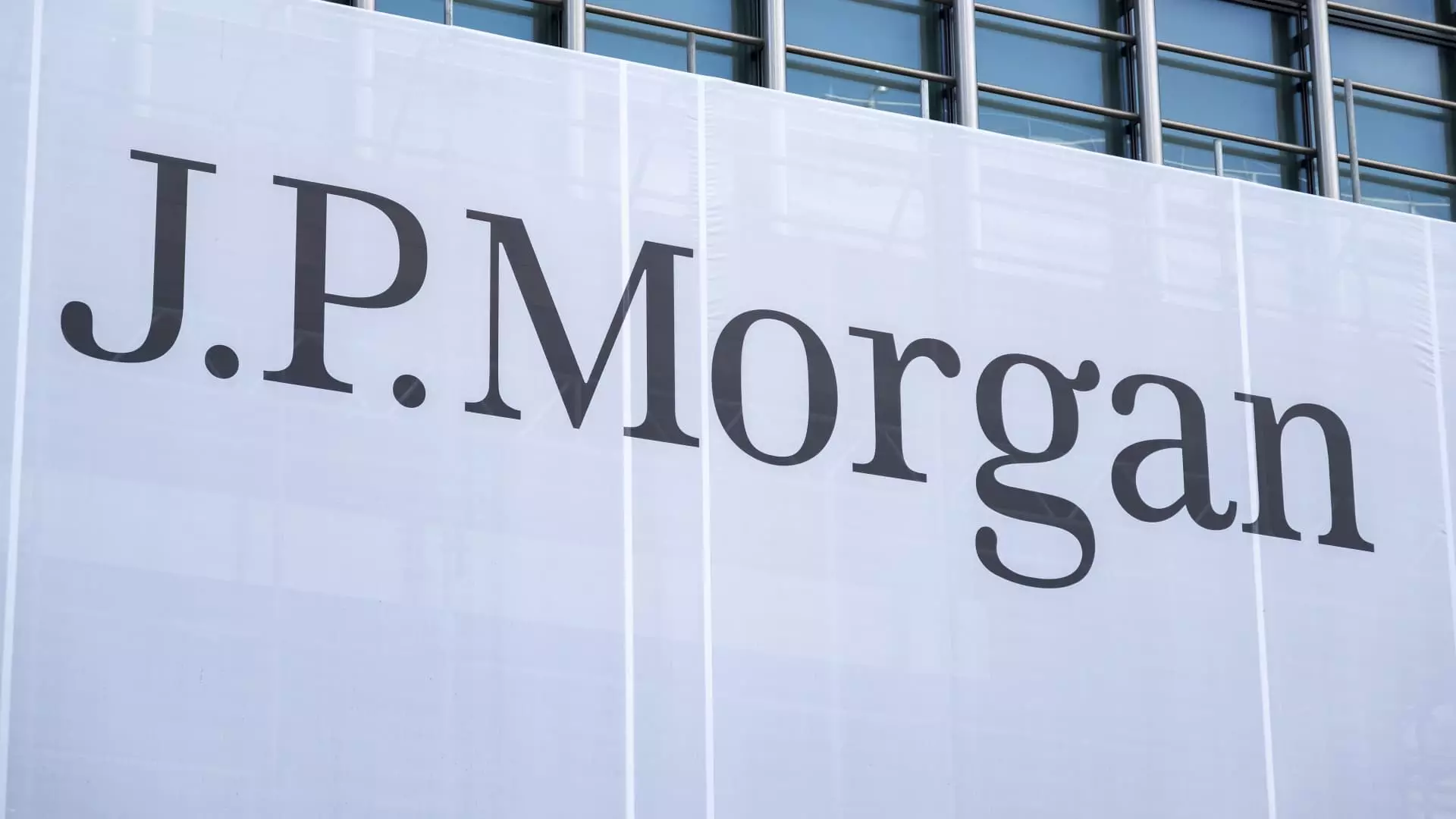In a noteworthy shift among financial analysts, David George from Baird has recently downgraded JPMorgan Chase’s stock from a neutral position to “underperform.” This evaluation signals significant concern for investors as George sets a price target of $200 for the stock, insinuating a potential drop of about 19% from its closing prices earlier this week. Such a downgrade not only challenges the prevailing optimism surrounding JPMorgan but also raises critical questions about the risk-reward dynamics associated with the investment.
George articulates his perspective by suggesting that JPMorgan is currently over-earning through two key revenue streams: net interest income and credit. This assessment leads him to deem the stock as overpriced relative to its current trading levels. For instance, he notes that the stock is trading at approximately 2.6 times its tangible book value and around 14 times its 2026 earnings per share estimates. These metrics are concerning, primarily because they hover near historic highs. When a stock trades at such elevated multiples, it often signifies heightened expectations, making it vulnerable to any variability in performance. Investors may face a precarious scenario where even minor misses in revenue or earnings could lead to a detrimental correction in stock price.
Another critical aspect of George’s analysis revolves around the potential for stock buybacks at JPMorgan Chase. While historical trends may suggest that a friendly regulatory environment could foster aggressive capital return strategies, George doubts this will transpire. He proposes that the current price levels render buyback programs ineffective; essentially, these initiatives wouldn’t meaningfully bolster earnings per share (EPS) or provide adequate returns on capital for shareholders. This sentiment could discourage investors who typically view buybacks as a positive indicator of a company’s financial health and confidence in its future prospects.
Interestingly, George’s bleak outlook sets him apart from a majority of his contemporaries covering the stock. According to analysis from LSEG, a significant number of analysts—specifically 15 out of 24—still rate JPMorgan Chase stocks as a “buy” or “strong buy.” This disparity among analysts indicates a divided sentiment, reflecting the complexities and challenges inherent in predicting stock performance in the financial sector. However, it also reinforces the argument for a more cautious approach when evaluating highly-rated financial entities like JPMorgan.
The recent downgrade of JPMorgan Chase by Baird’s David George invites investors to reassess their positions carefully. With concerns about overvaluation and skepticism surrounding future buyback strategies, the recommendation to consider selling the stock warrants attention. While some analysts maintain a positive outlook, the combination of high expectations and the possibility of a market correction due to earnings misses creates a fine balancing act for investors. Ultimately, the investment landscape for JPMorgan Chase poses both risks and opportunities that must be navigated with diligence and foresight.

